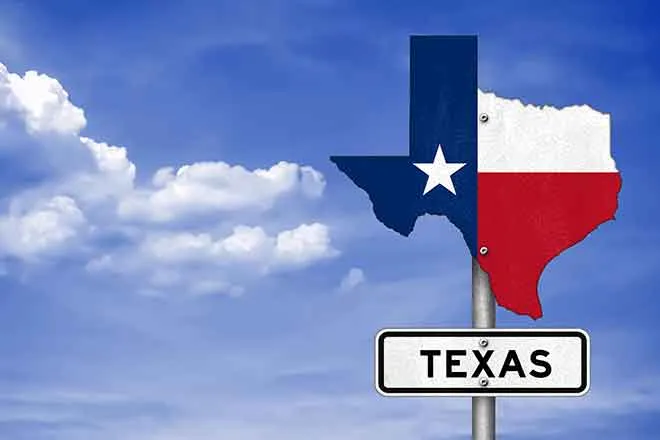
Daily Audio Newscast - February 11, 2025
© AlexLMX - iStock-823000260
Six minutes of news from around the nation.
Trump imposes 25% tariffs on steel and aluminum; 80% of Montanans oppose reduced workers' rights; Lawmaker says dismantling Education Dept. would harm Oregon schools; Harm reduction efforts fall short for Black men in Indiana.
Transcript
The Public News Service Daily newscast, February 11, 2025.
I'm Mike Clifford.
President Donald Trump Monday imposed a 25 percent tariff on all steel and aluminum imports into the US with no exceptions or exemptions.
That from CNN.
They report although the US gets most of its steel from Canada, Brazil, and Mexico, the tariffs are largely indirectly aimed at China.
America imports very little steel directly from China by far the world's largest producer of steel.
A Trump administration official said the new tariffs on steel, though holding at 25 percent, were designed to eliminate loopholes and numerous exemptions that have led some importers to game the system.
And a January survey of Montanans shows a large majority support workers' rights, even in several bills that could impact them, moved through the state's legislature.
The bipartisan firm Rabah Research asked roughly 500 Montanans their thoughts on labor and found that 72 percent think that unions help rather than hurt Montana's economy.
John Davis is a partner at the firm and says that support was even stronger across more specific questions.
When we had asked a question about changing laws that would weaken employment protection, so examples being safe work environments, wages, benefits, 80 percent of respondents said they do not support efforts to reduce those protections. 91 percent said that Montana's workers should be able to join a union if they choose to.
And 87 percent said they'd be less likely to support a legislator that voted to weaken workers' rights.
I'm Kathleen Shannon.
Meantime, President Trump is threatening to dismantle the Department of Education and armed guards prevented Democratic leaders from entering the agency last week.
After introducing a resolution condemning attempts to defund public education, Oregon Congresswoman Suzanne Bonamici was denied access to the US Department of Education last Friday.
Bonamici, along with other Democratic lawmakers, was trying to meet with the agency's acting director but was blocked by armed officers.
Bonamici says federal funding is crucial to maintaining Oregon's Title I schools, special ed, and other programs.
I'm going to fight the privatization of public education.
I'm going to fight cuts to public education.
And I'm definitely going to fight the proposed elimination of the Department of Education.
Trump cannot legally abolish the Department of Education on his own, and he is unlikely to have the votes needed in Congress.
He is, however, expected to release an executive order to gradually close down the agency.
Trump has already ordered the Education Department to make it easier for families to use public funds to pay for private or charter schools.
Bonamici says voucher dollars from these programs largely go to families that already attend private schools.
She adds that vouchers are meaningless to people in rural communities.
To say to those families, "Okay, we're going to take away "some of your public school dollars.
"Here's a voucher you can use to go to another school."
There's no other school in many, many of those areas.
For Public News Service, I'm Isabel Charlay.
This is Public News Service.
Next to Indianapolis, where overdose deaths are surging, hitting Black men born between 1951 and 1970 the hardest.
Data shows deaths among this group are nearly three times the city's rate and almost 10 times the national rate.
Hoosier Nate Rush started battling addiction with marijuana when he was 12 years old.
By 17, he turned to heroin. 30 years later and in recovery, Rush trains peer specialists and supports Black men facing similar struggles.
A lot of people that are 50 to 70 count themselves out.
There's always hope.
You might've been to the penitentiary 10 times.
It still don't mean that you are that.
Hope is so powerful.
Rush is former executive director of the now-closed Bethlehem House in Indianapolis.
This story was produced with original reporting from Darian Benson and Mary Claire Malloy for Mirror Indy.
And a new study by the Rural Health Research Center at the University of Minnesota reveals that medical debt in rural Minnesota has an impact far beyond the bills many patients struggle to pay.
Center co-director, Terry Henning-Smith, says it isn't simply an issue of healthcare facilities passing along big bills to patients who must then shoulder the burden.
This is really an issue that impacts individual patients, whole communities, and healthcare facilities.
And I think smaller, rural facilities that have a more tenuous bottom line are some of the most impacted.
Henning says the matter is exacerbated by under-insurance and insufficient coverage from insurance companies, including Medicare and Medicaid.
She adds that financial strain can lead to hospital closures, which in turn harms the local economy and reduces access to care.
Her story was produced with original reporting from Liz Carey for The Daily Yonder.
For Public News Service, I'm Mark Richardson.
And finally, some Ohio lawmakers are advocating for surveillance cameras at highway rest stops, aiming to enhance safety and curb human trafficking.
A previous effort, House Bill 473, would have allocated funding for the initiative, but the bill failed to advance.
Representative Lauren McNally says there's a strong case for revisiting the proposal, especially in the Toledo area, which is one of the number one places in the country for human trafficking.
Anything to curb that trend, we're always looking at from a legal perspective at the state house and from a police perspective.
But it also does more than that.
Like when we talked to the Turnpike Association, they've actually been able to solve and stop crime.
Still concerns about privacy have led some to oppose the effort.
The ACLU of Ohio has voiced objections, arguing the bill could set a precedent for broader government surveillance.
Farah Siddiqui reporting.
This is Bob Clifford from Public News Service, member and listener supported.
Hear us on great radio stations, on your favorite podcast platform, find our content and trust indicators at publicnewsservice.org.

















